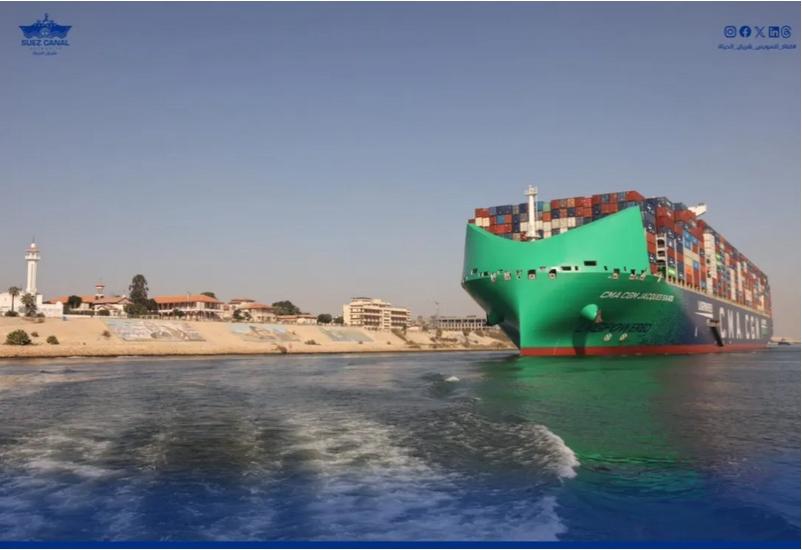
The general legal principle is that an agent will be entitled to commission when he is an effective cause of the business transaction in question. The application of this principle to S&P brokers was confirmed in F.W. Chambers Co Ltd v. Ardrossan Dry Dock & Shipbuilding Co Ltd (1927), Leo Lines, in Seascope Capital and Darius cases.
一般法律原则是,当某一代理人是促成有关商业交易的有效原因时,他将有权享有佣金的权利。适用于买卖经纪人的这一原则,在F.W. Chambers Co Ltd v. Ardrossan Dry Dock & Shipbuilding Co Ltd (1927) 案,Leo Lines 案,Seascope Capital 案和Darius 案中得到进一步确认。
Note also that in Nahum v. Royal Holloway (1999), Waller LJ distinguished between the need for the introduction (or other agreed intervention by the brokers) to be “an” effective cause as opposed to “the” effective cause, preferring the former interpretation.
还要注意的是,在Nahum v. Royal Holloway (1999)案,Waller大法官区分了引入(或其同意其它经纪人介入的情况)‘一个’有效的原因而不是‘特定的’有效原因的必要性,他倾向于前者的解释。
The Leo Lines case, the Seascope Capital case and the Darius case are important precedents for S&P brokers because they deal with a recurring problem for the broking community, namely circumstances in which brokers bring the principals together but then get bypassed in the negotiations or cut out of the deal altogether.
在Leo Lines案,the Seascope Capital案,和the Darius案,这对买卖经纪人来说是非常重要的先例,因为在经纪人的业务范围内,他们能够处理这类重复出现的问题,即是经纪人把双方当事人撮合到一起后,却在谈判中完全被绕开或被剥夺了参与交易的情况。
In the Darius case (see section 2.2.2 above) the seller contended that the actions of its broker were not an effective cause of the sale of the yacht. The seller argued that in the context of the super yacht market if a broker introduces the eventual buyer to the seller but is not the channel for at least some of the ensuing negotiations, the broker cannot be said to be an effective cause of the sale. The identity of the fortunate few individuals who can afford to pay the prices commanded by super yachts may be ascertained from publicly available sources. Accordingly, contended the seller, a broker in the super yacht market must do more to earn his commission than just circulate details of available yachts to persons who can afford to buy them. Rather a broker must bring the eventual buyer into the transaction, in particular by eliciting an offer from him. The judge rejected these arguments. He held that the sub-broker's approach to the eventual buyer had sparked the buyer's interest in the yacht, and that no subsequent event had broken the chain of causation between that initial approach and the buyer's eventual purchase of the yacht. The fact that the seller's broker had not been involved in the sale and purchase negotiations did not alter this analysis or prevent the broker from establishing an entitlement to commission on the sale. The judge referred to the Leo Lines case which turned on very similar facts and in which Devlin J had remarked that:
在Darius案(见上文第2.2.2节),卖方坚持认为其经纪人的行为不是促成游艇买卖的一个有效原因。卖方争辩说,在超级游艇市场的背景下,如果经纪人给卖方介绍了最终的买方,但至少在随后的一些谈判中,他不是买卖双方联系的通道,这就不能说经纪人是该买卖交易的一个有效原因。因为很少有人能够出得起并支付超级游艇所值的价格,这能够从公开的信息来源中查明几个幸运人士的身份。因此,卖方主张,在超级游艇市场中,经纪人必须做更多的工作才能赚取他佣金,而不仅仅是把现有的游艇资料散布给那些买得起游艇的人士。而经纪人必须使最终买家参与到买卖交易中,尤其是引导他发出要约。法官否决了这些观点。他判决,接触最终买家的下一级经纪人已经促使买方对游艇产生了兴趣,而且从最初的接触买方到他最终购买此游艇,这没有后续事件打断这一因果关系链。卖方的经纪人并没有参与买卖谈判这一事实,并没有改变这种分析或者阻止经纪人确立其买卖佣金的权利。法官还参考了与此案情非常相似的Leo Lines案例,在Leo Lines案,Devlin法官说道:
“[i]f a broker effects an introduction and is willing to go on with the usual business negotiation, it hardly lies in the mouth of an owner who takes it out of his hands to say that he has made no further contribution.”
‘如果经纪人进行介绍引荐并希望继续参与正常的商务谈判,它几乎不可能任由企图推卸责任的船东随口说他(经纪人)没有做出更进一步的贡献。’
Each case will turn on its own set of facts and it is therefore difficult to lay down any hard and fast rules about the way in which a broker's contribution will be measured in order to determine whether or not he is due a commission. But, if a broker is judged to have made a material or valuable contribution to the consummation of a sale, even where this is limited in providing an introduction, then he will probably be due a commission. But the broker's entitlement to commission may be denied if the seller can prove that there was some event that broke the chain of causation linking the broker to consummation of the sale or that constituted an intervening cause of greater potency than the broker's actions.
每一个案件都由其自身的事实背景而定,因此,这对于用何种标准衡量经纪人的贡献,以判定他是否应该得到佣金,这很难给出任何一成不变的硬性规定。但是,如果判定经纪人对最终完成交易已经做出了重要的或有价值的贡献的话,即使这是仅限于提供一个引荐服务,那么,他很可能应该得到佣金。但,如果卖方能够证明有一些事件打断了连接经纪人与最终完成买卖交易之间的因果关系链,或者构成一个比经纪人的行为更有力的干预原因,则经纪人享有佣金的权利就可能被拒绝承认。
In the second-hand ship sales business the usual practice is that no commission is payable unless and until the purchase price is paid and the ship is delivered. The often-used expression “no sale, no fee” is somewhat misleading because the signature of a ship sale contract does not usually mean that the ship in question has been sold. Rather, the contract will usually contain an agreement to sell at a future date providing that certain stated conditions are fulfilled and the sale will be consummated only when the ship is delivered to the buyer.
在二手船买卖交易中,除非,以及直到支付船舶购买价格和交付船舶,通常的做法是不会支付佣金的。 ‘没有销售,没有报酬’,这一常用表达形式会使人产生有些误解,因为签署船舶销售合同通常并不意味着这艘船已经出售。相反,合同中通常会包含一个协议规定,需要将来日期满足某些设定的条件才能出售,并且船舶交付给买方时才算最终完成交易。
What is the position when a broker is the effective cause of a sale contract but is deprived of all or part of his commission by non-performance or premature termination of the contract? The case law is in a confused and (from the brokers' point of view) unsatisfactory state.
当经纪人是买卖合同的有效原因,但却因合同未能履行或者提前终止,经纪人被剥夺全部或部分佣金的权利,他的地位又将如何?普通(判例)法还是比较混乱和(从经纪人的观点看)不满意的一种状态。
Accordingly, it would be prudent to cover these issues by means of a clearly worded clause in the ship sale contract or in a legally binding side agreement which is made supplemental to the sale contract.
因此,涉及这些问题,比较明智的做法是,通过在船舶买卖合同中加入一个措辞明确的条款,或者在附属于买卖合同并具有法律约束力的单边协中加入这样的条款。
2.4 当没有合约关系时,买卖经纪人主张索赔佣金的权利
2.4.1 The web of business relationships
In a typical second-hand ship sale transaction where both parties are represented by brokers, there will be three separate business relationships:
- a principal to principal relationship between the seller and the buyer under the sale contract;
- a principal to agent relationship between the seller and its broker; and
- a principal to agent relationship between the buyer and its broker.
There may also be relationships between the main brokers and the other brokers (known as “sub-brokers”) who worked on the transaction.
在一个典型的二手船买卖交易中,当双方都是由经纪人代理时,这将会有三种独立的业务关系:
(1). 根据买卖合同,在买卖双方之间,委托人对委托人的关系;
(2). 在卖方与其经纪人之间,委托人对代理的关系;
(3). 在买方与其经纪人之间,委托人对代理的关系。
这还有可能存在主要的经纪人与服务于该交易的其它经纪人(次级经纪人)之间的关系。
2.4.2 没有合同相互关系
It will often be the case that a broker will be acting as the buyer's agent and that the seller and the buyer will have entered into a sale contract on the understanding that, on delivery of the ship to the buyer, the seller will pay a commission to the broker. In such circumstances there will be no legally binding agreement between the seller and the broker or, in legal jargon, no “privity of contract”.
这经常会出现这种情况:经纪人作为买方的代理人,买卖双方达成谅解签订买卖合同,然后把船舶交付给买方,卖方支付给经纪人佣金。在这种情况下,在卖方和经纪人之间并不存在具有法律约束力的协议,或者用法律术语来说,是没有‘合同相互关系’。
The doctrine of privity of contract is, in essence, that where one party to a contract – a “promisor” – promises to confer a benefit on a third party, that third party will not be entitled to enforce directly that promise against the promisor. The status of the doctrine of privity as a cornerstone of English contract law was neatly summarised by Lord Haldane LC in Dunlop Pneumatic Tyre Co Ltd v. Selfridge & Co Ltd (1915):
合同相互关系的原则是,在本质上,其中合同一方当事人——某一‘承诺方/立约人’——承诺授予第三方利益,而第三方并无权直接向立约人强制执行要求兑现承诺。相互关系原则的法律地位是作为英国合同法的基石,在Dunlop Pneumatic Tyre Co Ltd v. Selfridge & Co Ltd (1915) 案, 上议院议长Haldane勋爵对此精辟的概括:
“In the law of England certain principles are fundamental. One is that only a person who is a party to a contract can sue on it.”
‘在英国法律中,某些原则是根本性的。其中一个原则是:只有是该合同的一个当事方才能提起诉讼。’
However, significant exceptions to the rules on privity of contract have arisen following the enactment of the Contracts (Rights of Third Parties) Act 1999 (“1999 Act”).
然而,在《1999年合同(第三方权益)法》颁布之后,对合同相互关系,出现了一些重要的例外情况。
2.4.3 Contracts (Rights of Third Parties) Act 1999
2.4.3《1999年合同(第三方权益)法》
Section 1(1) of the 1999 Act provides that a person who is not a party to a contract may in his own right enforce a term of the contract if:
- the contract expressly provides that he may, or
- the term in the contract purports to confer a benefit on him (unless on a proper construction of the contract it appears that the parties to the contract did not intend the term to be enforceable by him).
Section 1(3) provides that the 1999 Act applies to third parties who are expressly identified in the contract by name but also to those who are members of an identified class or who answer to a particular description.
《1999年法案》第1(1)条规定:如果因以下情况,非合同当事方可以自己的名义直接执行合同条款:
(1). 合同明文规定,他可以如此,
(2). 在合同条款中声称授予他某种利益(除非是按照合同正确的解释显示,合同当事方是确实没有意图使他执行合同条款)。
第1(3)条规定,《1999年法案》适用于在合同中以名称明确指定身份的第三方,但也适用于某种指定类别或符合某种特定描述身份的一部分成员。海运圈聚焦专栏作者 魏长庚船长(微信号CaptWei)

 2017-02-15
2017-02-15 1441
1441 














